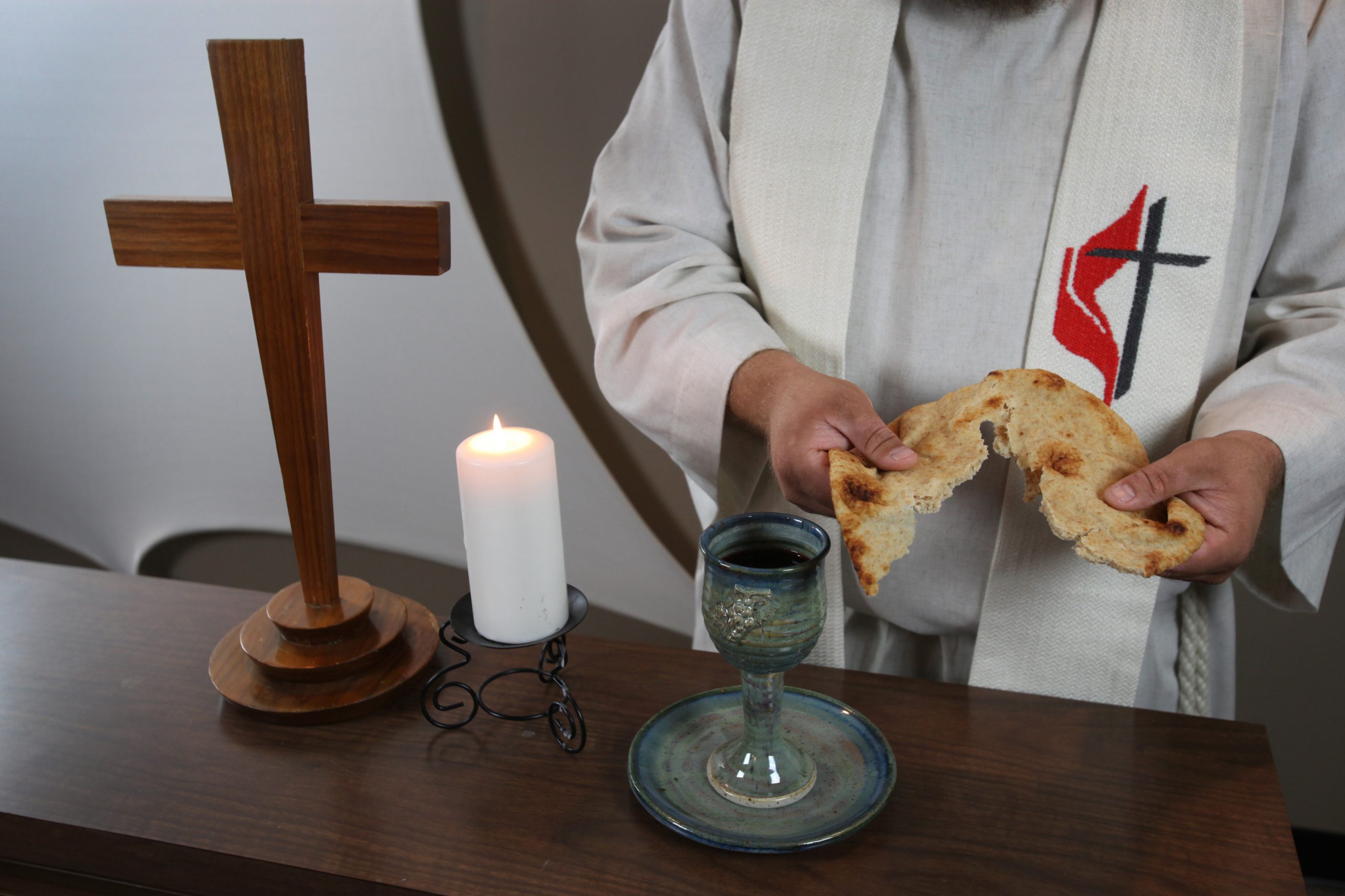Do United Methodists believe the bread and wine become the body and blood of Christ?
In the Great Thanksgiving, we ask the Holy Spirit to be poured on us and on the gifts of bread and wine we offer. We ask for the Spirit’s outpouring to make the bread and wine be for us the body and blood of Christ so we, who receive them, may be for the world the body of Christ redeemed by his blood. We believe God answers this prayer ”Yes,” and the Spirit does all these things. Christ is really present here, and Christ’s presence really changes us.
Practices
Why do many United Methodists use grape juice instead of wine?
Predecessor bodies of The United Methodist Church were deeply involved in the Temperance Movement. Grape juice was originally invented by Thomas Welch, a Methodist, so Methodists and others would not need to use wine for communion. Today, United Methodists still commend, but do not require, abstinence, and may continue to use grape juice in communion out of pastoral concern for people who may have problems with alcohol.
Does the bread at Holy Communion need to be unleavened?
Either leavened (in witness to the resurrection) or unleavened (in witness to the cleansing power of the Holy Spirit) may be used.
If I cannot eat wheat, may I still receive communion?
Yes. United Methodist congregations are expected to provide alternatives for persons with celiac disease and other allergies. Even if they do not, the ancient Christian doctrine of concomitance means that a physical ability to receive in either kind (bread or cup, or even both!) does not alter the benefits of the sacrament when you present yourself to receive it.
When should the bread be broken?
As we note in the ritual in our hymnal, the bread is broken after the conclusion of the Great Thanksgiving, typically right after the Lord’s Prayer. We do not break the bread to remember the words or re-enact the actions of Jesus. We break the bread because after we have completed our prayer of Thanksgiving and the Spirit has been poured out upon it and upon us, now we are ready to start giving it to others. What the pastor does in the ”breaking” is to start the whole process of breaking that enables all present to receive.
Do I have to kneel to receive?
No. How you receive is up to you. Most congregations will offer several ways you may receive. You may stand and receive in a line, or you may kneel at a rail near the Lord’s Table, or if you are unable to come forward, someone may bring you the blessed elements where you sit.
How may I receive?
The key word is that you receive rather than take the elements. They are given to you by servers. When you receive the bread, you may want to hold your hands out, with your left hand cupping and supporting your right hand. The server will say something to you about the bread as it is given to you. Before you eat it or hold it to proceed to the cup, you may say ”Amen” or ”Thanks be to God.” When the cup is offered to you, the server will say some words to you about the cup. You may respond ”Amen” or ”Thanks be to God” and then either dip the bread into the cup (but not your fingers!) or drink from the cup. Most United Methodists tend to dip into the cup rather than drink from it.
Who May Receive?
As we say in our Invitation to the Table, ”Christ our Lord invites to his table all who love him, who earnestly repent of their sin, and seek to be at peace with one another.” If you can say you do or have done these three things, you are welcome to receive.
Additionally, all baptized Christians, of any age (including infants) and any Christian denomination are welcome to the Lord’s table. It is Christ’s table. He welcomes all who are baptized in his name, and so do we.
We affirm the historic Christian precedent that people are normally baptized prior to receiving communion. Yet, as our invitation notes, baptism is not required. If you come and are not yet baptized, we will encourage you toward baptism at your earliest convenience.
Who May Preside?
In The United Methodist Church, a clergyperson presides at the Lord’s table. Usually, this is the appointed pastor of that local church. Ordained elders in The United Methodist Church are authorized to preside in any of our churches or anywhere communion may be celebrated. Bishops may at times authorize a deacon to preside in the context of their place of service. More often, however, deacons assist the presider rather than preside. We also authorize some clergy in denominations with whom we are in full communion according to the terms of our full communion agreements when they are visiting in our churches. Laypersons are not authorized to preside, but may assist an authorized presider.
Share this content:
